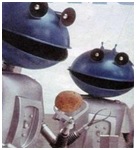|
 |
|
 |
|
|
||
Advertising and sales promotion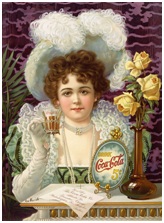 (a 1890's advertising poster of Coca-Cola is shown right).
Four ways to boost sales are...
1. Advertising
Mass media advertising (e.g. on TV) is often referred to as above-the-line advertising.
2. Public relations (PR) Improving an organization’s image and reputation with its employees and the general public through:
3. Personal selling Using a sales force to sell directly to customers - see personal selling
4. Sales promotion(often called below-the-line expenditure) All promotions apart from advertising, personal selling, and public relations:
The 4 M’s of successful advertising
1. Market The advertisement must appeal to its potential customers (or target market) and encourage them to buy the
product.
2. Medium Where the advertising is communicated e.g. TV, radio, Internet, magazines, newspapers.
3. Measurement Measuring the effectiveness of advertising i.e. how much it increases sales and the power of the brand. The top global brand in 2014 was Apple (pictured right above is its famous 'think different' campaign)
4. Message The content of the advertising (or copy) and what it tells people about the product. This is likely to include entertainment, music and a slogan. Successful slogans have been:
But things can go wrong selling abroad...
Cadbury’s Smash: An example of the 4 M’s An advertising campaign (begun in 1974) for a British brand of instant mashed potato (pictured right).
1. Market Anyone wanting an easy alternative to real potatoes.
2. Medium TV.
3. Measurement Extremely effective campaign that boosted sales and brand awareness.
4. Message Tin Martians have a laugh about humans peeling potatoes. The advertisement finished with the slogan, ‘For mash get Smash’, sung to a catchy tune.
Key quotes explained
“The medium is the message” - Marshall McLuhan (Canadian communications expert, pictured right) Where you advertise has a big influence on how it is understood. McLuhan also described advertising as “the greatest art form of the twentieth century”.
“Many a small thing has been made large by the right kind of advertising” - Mark Twain (American writer, pictured right) Twain’s comment in his novel, A Connecticut Yankee in King Arthur’s Court (1889) shows that advertising may mislead as well as inform. It may also encourage greed, over-spending and dissatisfaction with what you’ve got.
“The best advertising is done by satisfied customers” - Philip Kotler (marketing professor, pictured right) Word of mouth advertising is best, so treat your customers well. “Courteous treatment will make a customer a walking advertisement”, said J.C. Penney, the founder of the American department store.
“Advertising and promotion alone will not sustain a bad product or a product that is not right for the time” - Akio Morita (co-founder of Sony, pictured right) Advertising can’t make a bad product a success but quality can. The cosmetics boss, Estée Lauder, believed that: “The product...will speak for itself, if it’s something of quality”.
“It is hard to fight against impulsive desire; whatever it wants it will buy at the cost of the soul” - Heraclitus (Greek philosopher, pictured right)
Best books
Vance Packard (pictured right), The Hidden Persuaders (1960) This attacked subliminal advertising, lightening fast unnoticed messages with unconscious effects. Advertising results in the “engineered yes” i.e. we are manipulated to buy a product, even if we don’t want it. J.K. Galbraith (pictured right), The Affluent Society (1958) Large companies create demand for their products through advertising.
David Ogilvy, Confessions of an Advertising Man (1963) David Ogilvy (1911-99), pictured right, was a hugely successful and influential British advertising executive who believed that the aim of advertising is to sell a product by effectively communicating its benefits to customers. So you must know and respect them. “The consumer isn’t a moron; she is your wife”, he wrote. Ogilvy's other advertising tips are:
1. What you say is more important than how you say it So give people facts.
2. Be original An advertising campaign must be built around a great original idea.
3. Grab customers’ attention So an advertisement must be:
But don’t be tempted to entertain instead of sell.
4. Product is paramount
5. Be ethical Be honest, truthful and well mannered. “Never write an advertisement which you wouldn’t want your family to read”, Ogilvy advised. |
|
|
||
|
|
||
| Copyright © wisdomtowin.com 2025 All Rights Reserved | ||
|


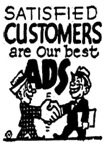
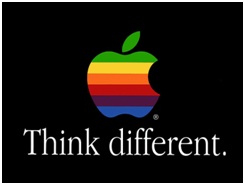
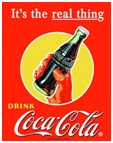
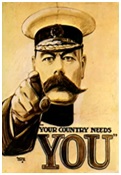 Go to work on an egg (British Egg Marketing Board).
Go to work on an egg (British Egg Marketing Board).